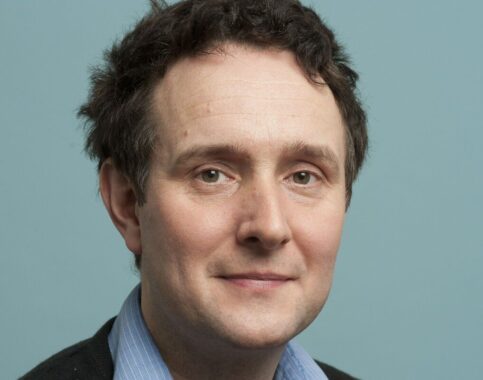Portfolio general practice is the future

Dr David Mummery on why more GPs should consider diversifying their careers
In mid-June, the BMA held a ‘Sessional GP Week’. This was a week-long online campaign to highlight the value of sessional GPs and promote sessional general practice as a positive career choice.
Unfortunately, it seems that doing purely clinical work as a GP nowadays is a direct route to burnout: GPs need to pace themselves, and it seems that doing five or six clinical sessions a week must now be regarded as full-time. This is especially true when we consider the associated large amounts of time needed for administration, checking results, processing letters etc.
But doing other GP work such as teaching, research, LMC work, academic roles, ICB or national roles, GPSI roles and medical work with government agencies alongside the ‘normal’ day-to-day clinical work is hugely rewarding and compelling, and in many cases the different roles feed into and enhance each other. There are always opportunities for learning in our great profession.
There is a strong argument that, as portfolio working is becoming the ‘new normal’, it should be built into any new GP contract. Our hospital consultant colleagues, for instance, rarely work more than five or six clinical sessions a week, even when they are full-time – these are the professional activities (PAs) that form part of a hospital consultant’s job plan. Consultants also get supporting professional activities (SPAs), which are non-patient-facing sessions for CPD, research, teaching, management (and advice and guidance sessions!), which are also part of a consultant’s rota.
Is it time for a similar model in general practice? It would make sense, as this model seems to be the way that most GPs now want to structure their roles. The way we work is changing, and GPs are very aware of the huge current pressures and are trying to avoid burnout, which we all know can be devastating.
Maybe taking a leaf out of the sessional GP’s playbook and encouraging portfolio working for all – and embedding it in a contractual form – is the key for longevity in general practice. After all, it could help stop GPs from leaving the profession and encourage younger GPs to take on more substantive roles, as well as draw GPs in from the large locum pool. It could also encourage continuity of care for patients, which has been shown to have better outcomes for patients and improve job satisfaction for GPs.
I would encourage all GPs, including later career GPs, to look at the resources and information that forms the BMA Sessional GPs Week. In the latter part of our careers, many GPs want to cut down their core clinical work but also want to remain involved in general practice. By developing a portfolio career, this can be done successfully – and in many cases, it may prevent retirement age GPs from leaving completely.
None of us know what the future has in store for our profession over the next year or two, and there may be major changes if there is a change of Government. Even former health minister Lord Darzi – who is politically influential in the area of health policy – recently said in a Financial Times article that GP contractors need to be ‘brought into the fold’ to ‘finally complete the NHS’.
You may agree or disagree with this, but whatever happens, developing your own portfolio general practice career can only be a good thing.
Dr David Mummery is a GP in London
Pulse July survey
Take our July 2025 survey to potentially win £1.000 worth of tokens

Related Articles
READERS' COMMENTS [5]
Please note, only GPs are permitted to add comments to articles












I totally agree with David Mummery, and in fact the idea is not new. it was a condition to my joining partnership that I had another role (though at the time this may be because it was practice income generating) but over the course of my career it has been a steadying and energy regaining feature. (involving m, any roles changing and developing over the years with sabbaticals adding another re charge).
Oddly some roles which also give a much needed break are things that are rebuffed by many such as minor surgery and travel medicine again once a core role that all GP’s did but now seen as ‘not our job’ by many. To me a self harming move.
It is though important that the core sessional GP does offer continuity in one practice for one set of patients for a significant length of time rather than locum sessions all over the place where patients get no follow up and the learning one gets from this is lost. I would actually think of this as being a bit of a parasite taking high wage for no commitment
Could not agree more with Dr Mummery – portfolio work is good for sanity in my opinion
Hopefully it will still be possible, in exchange for money, to see someone other than these people? Someone with significant clinical experience rather than hobbyists who don’t even know what they don’t know?
Thank you, Dr Mummery. An excellent article.
@Dave Haddock
If you can pick a GP who works 10 standard clinical sessions and still loves it, great… go for it! However the comments section in Pulse suggests that such paragons are few and far between.
You may end up instead facing a choice between a GP who works more standard clinical sessions and is closer to burnout vs a GP who has a more varied working week and still enjoys the job. I personally would not pay extra for the former.